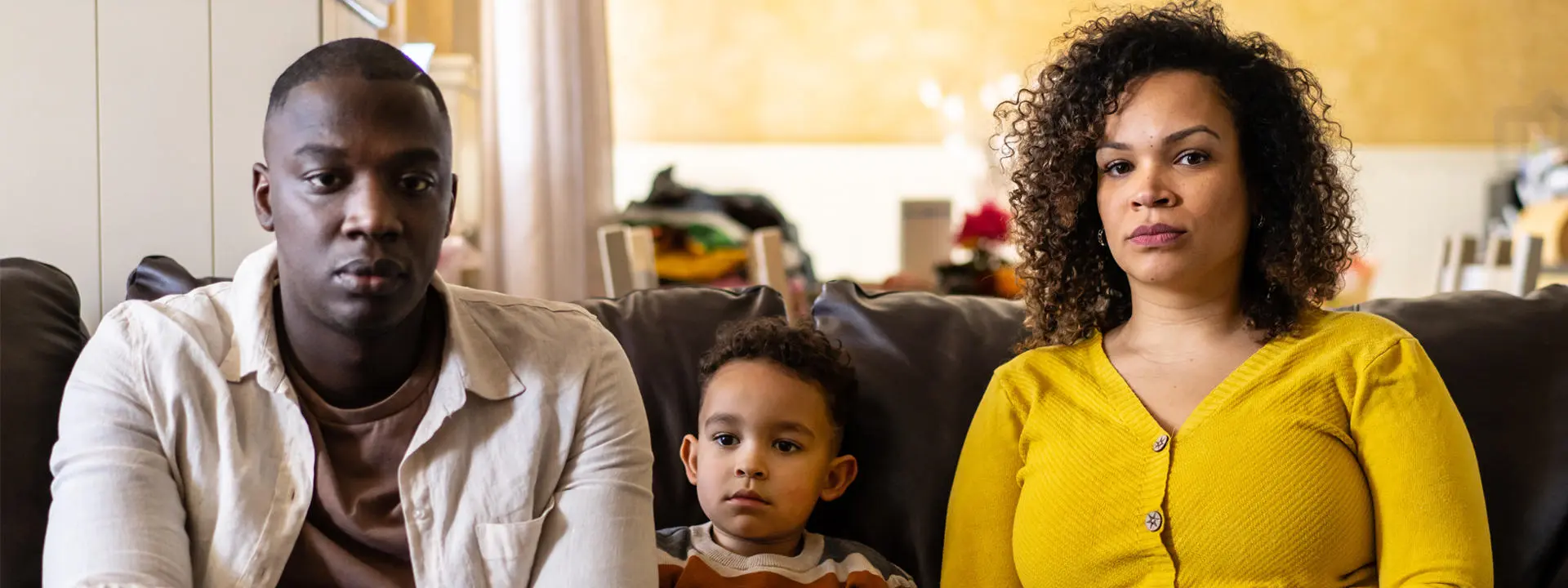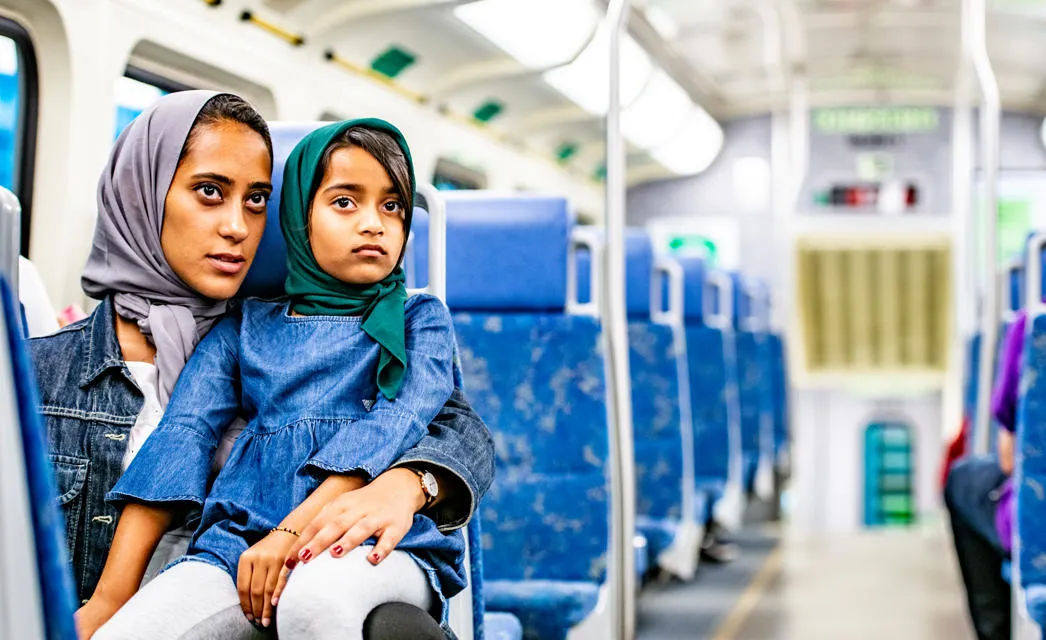Black and minoritised people feel forced to disguise their identities

Groundbreaking analysis of 750,000 household records by Heriot-Watt University reveals Black families accepted as statutorily homeless are less than half as likely to gain social housing as their White counterparts
Black and other minoritised people facing homelessness are also feeling forced to change their names, alter their accents and even cut their hair in an attempt to avoid discrimination, according to the devastating new research that exposes systemic failures across England’s housing and homelessness system.
The culmination of a comprehensive three-and-a-half-year study by the Institute for Social Policy, Housing, Equalities Research (I-SPHERE) at Heriot-Watt University reveals that only 10% of Black families gained social housing through the statutory homelessness system, compared to 24% of White families.
This is a system that's supposed to help people in crisis, yet we're hearing accounts of callous, uncaring and unresponsive services.
This means Black families are less than half as likely to secure permanent housing as their White counterparts. Similar outcomes were identified for other minoritised families, with rates ranging between 11-12% for most.
Using the Office for National Statistics Secure Research Service to analyse 750,000 household outcome records covering three years from England's official homelessness data, the research provides the most detailed picture yet of how the housing system and other public and voluntary sector services are failing minoritised communities in several significant respects.
As one participant told our researchers: “…I always hide my identity...I've got 21 names that I just go by…because I've experienced a lot of discrimination, I don't like to just tell people anything, about my nationality, about my status.” (Lived experience participant)
Masking identities was found to be a common thread through focus groups with comments including:
“My sister had to change her name to our father's first name…She had to start watching YouTube channels to speak from a proper English accent…she said it's working for her. She said, somebody at work said, 'You're not a typical Black woman,' and she didn't react, but she said that she understood immediately…My son has an all ethnic name and she was telling me recently, you better change it…” (Lived experience participant)
The findings reveal a homelessness system that, rather than compensating for existing inequalities, can actually reinforce them through poor outcomes and discriminatory treatment.

Professor Suzanne Fitzpatrick, Director of I-SPHERE at Heriot-Watt University and the report's lead author, said: "The evidence is stark: Black people are almost four times more likely to become homeless, and when they do access the statutory system, they face dramatically worse outcomes. We have quantitative evidence that their outcomes are worryingly poor, and qualitative evidence that they face racial discrimination. This is a system that's supposed to help people in crisis, yet we're hearing accounts of callous, uncaring and unresponsive services.
“This evidence, the most comprehensive study of its type, reveals ethnic disparities in the risks, experiences and outcomes associated with homelessness in contemporary England. This demands an urgent and wide-ranging response. We're talking not only about poor housing outcomes here, but also in some cases about people feeling forced to deny their own identity to access basic services."
The research reveals systematic disadvantage throughout the homelessness process:
● Black families are six times more likely to live in overcrowded conditions than White households
● Pakistani and Bangladeshi households face the highest overcrowding rates at over seven times the White average
● 41% of Black families leave the statutory system to unknown destinations, compared to 28% for White families
Beyond the statistical disparities, the report documents shocking experiences of discrimination across multiple services. Participants reported being told by council officials:
"You should be grateful for what you have. You don't have this back in your country."
The study found evidence of racist stereotypes affecting treatment across health, education, criminal justice and housing services, with harmful assumptions about 'angry Black women' and 'dangerous Black men' influencing how people are treated.
Matthew Johnson, CEO, Race on the Agenda, said: “We are proud to have supported the launch of this important report. The disparities experienced by black and global majority communities in the UK are deeply concerning. Systemic racism is a driving force behind housing inequality, and it must be explicitly acknowledged and addressed. We strongly support the implementation of the report’s recommendations and call for race to be placed on the housing agenda.”
Matt Downie, Chief Executive of Crisis, said: “This groundbreaking new report provides fresh evidence of racism in our housing and support systems. The findings are deeply concerning and must act as a wake up call. No one should be denied a safe and stable home, and we all have a part to play in ending homelessness for everyone.
“Through their upcoming homelessness strategy, the UK Government must take the chance to root out racial discrimination and prejudice in our housing and homelessness systems by adopting the recommendations in this report. For social housing, we would like to see the Government go further by ensuring providers allocate homes to people experiencing homelessness from all backgrounds. Removing these structural barriers would allow people to rebuild their lives and leave homelessness behind for good, regardless of their background, race or identity.”
The report's recommendations demand immediate action across sectors and at different levels of government including:
· Connect with the cross-government homelessness strategy.
· Invest in the professionalisation, training and support of housing and homelessness officers.
· Tackle racism amongst private landlords.
· Strategically redesign the relationship between specialist and mainstream voluntary sector services to maximise their respective strengths.
· Radically re-engineer the link between the asylum and statutory homelessness systems.
· Reject 'ethnicity-blind' approaches and promote robust ethnic monitoring.